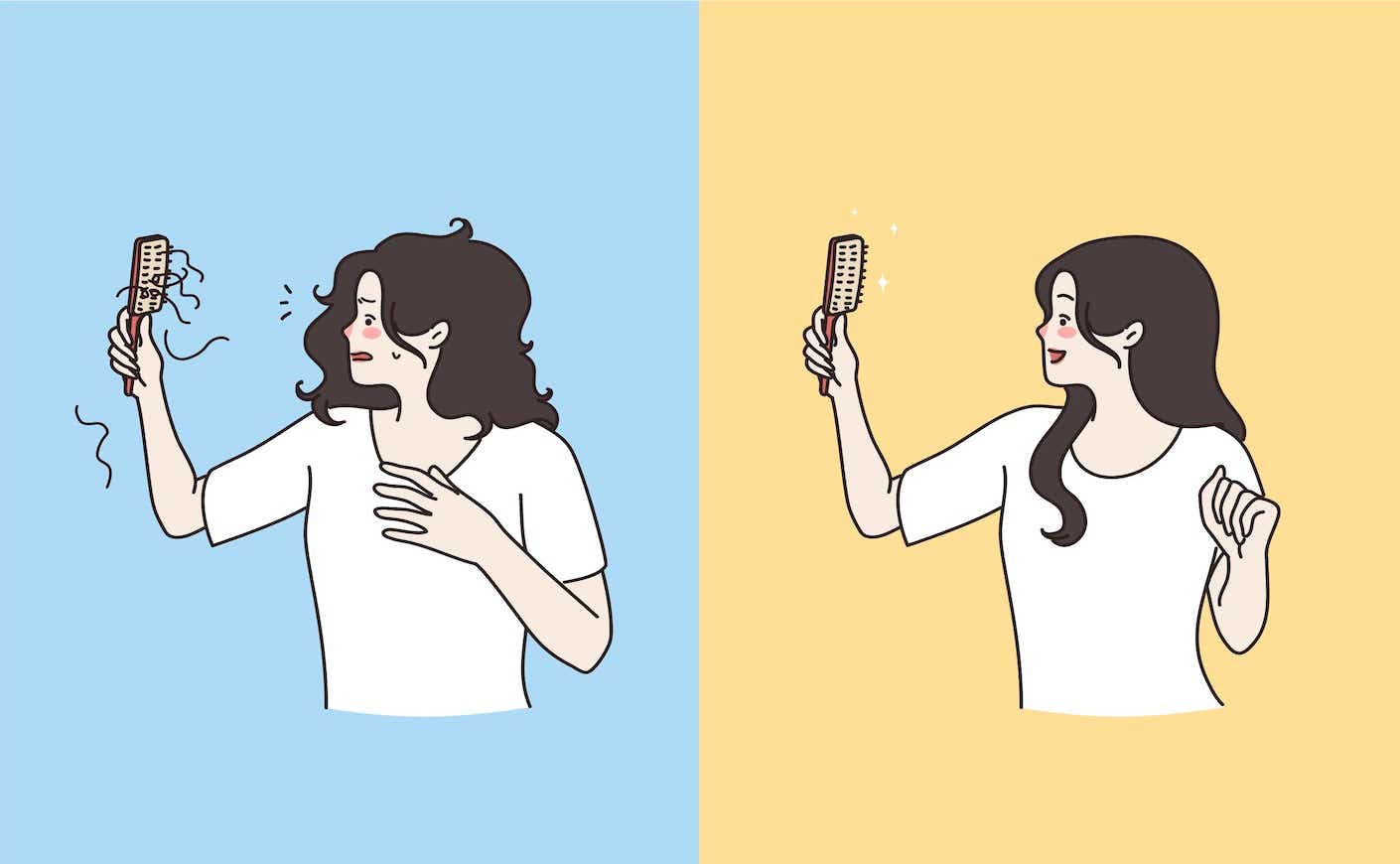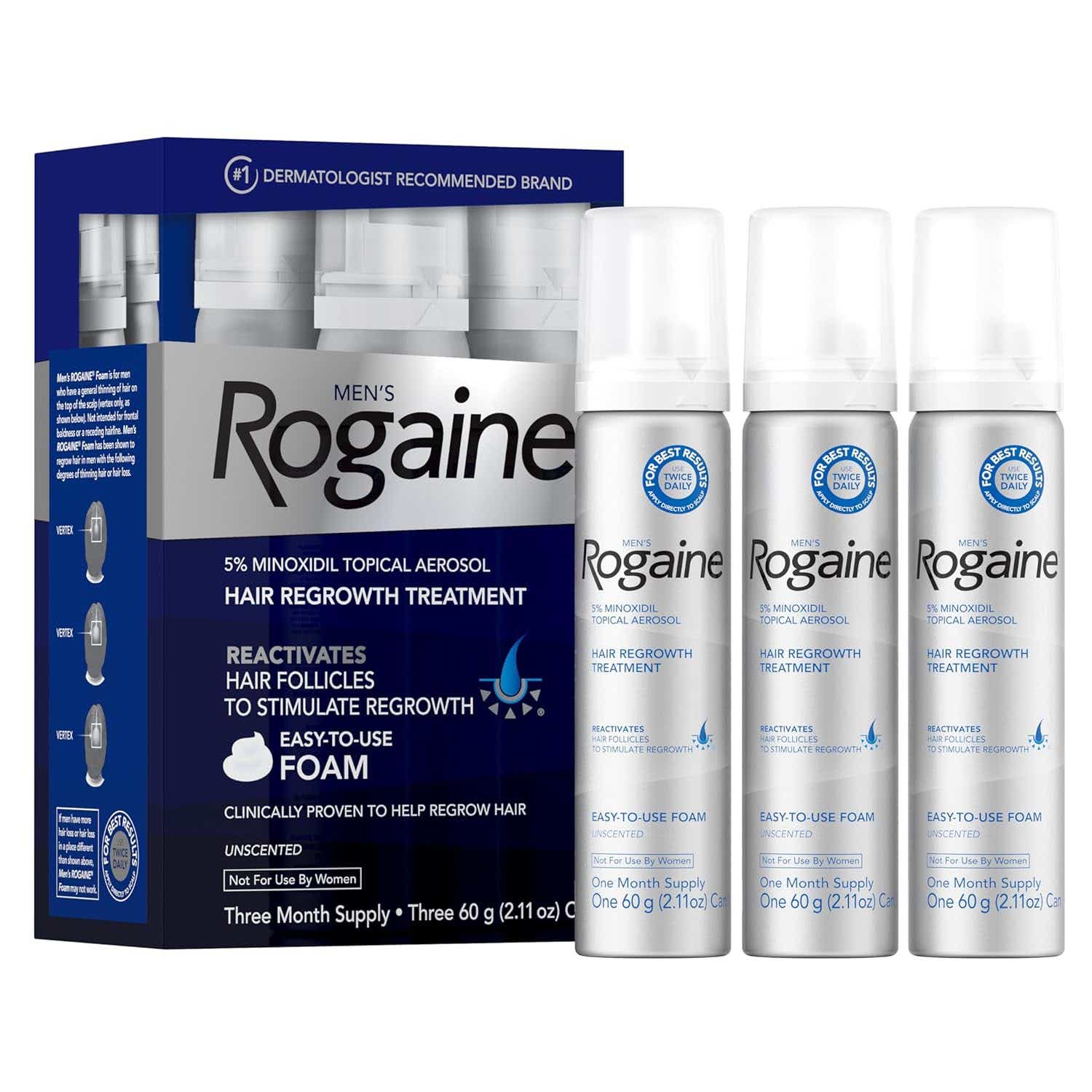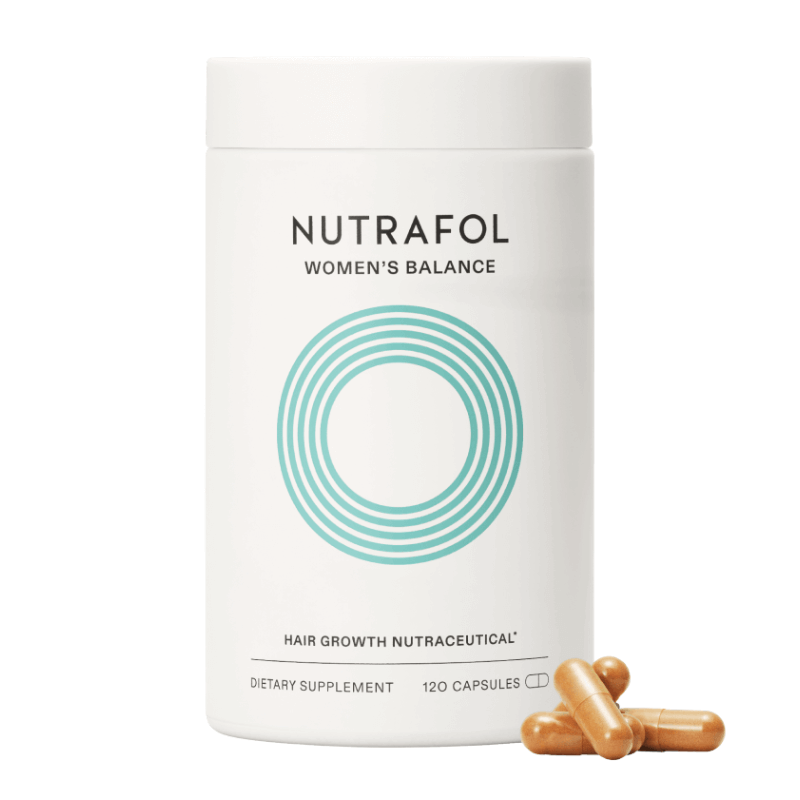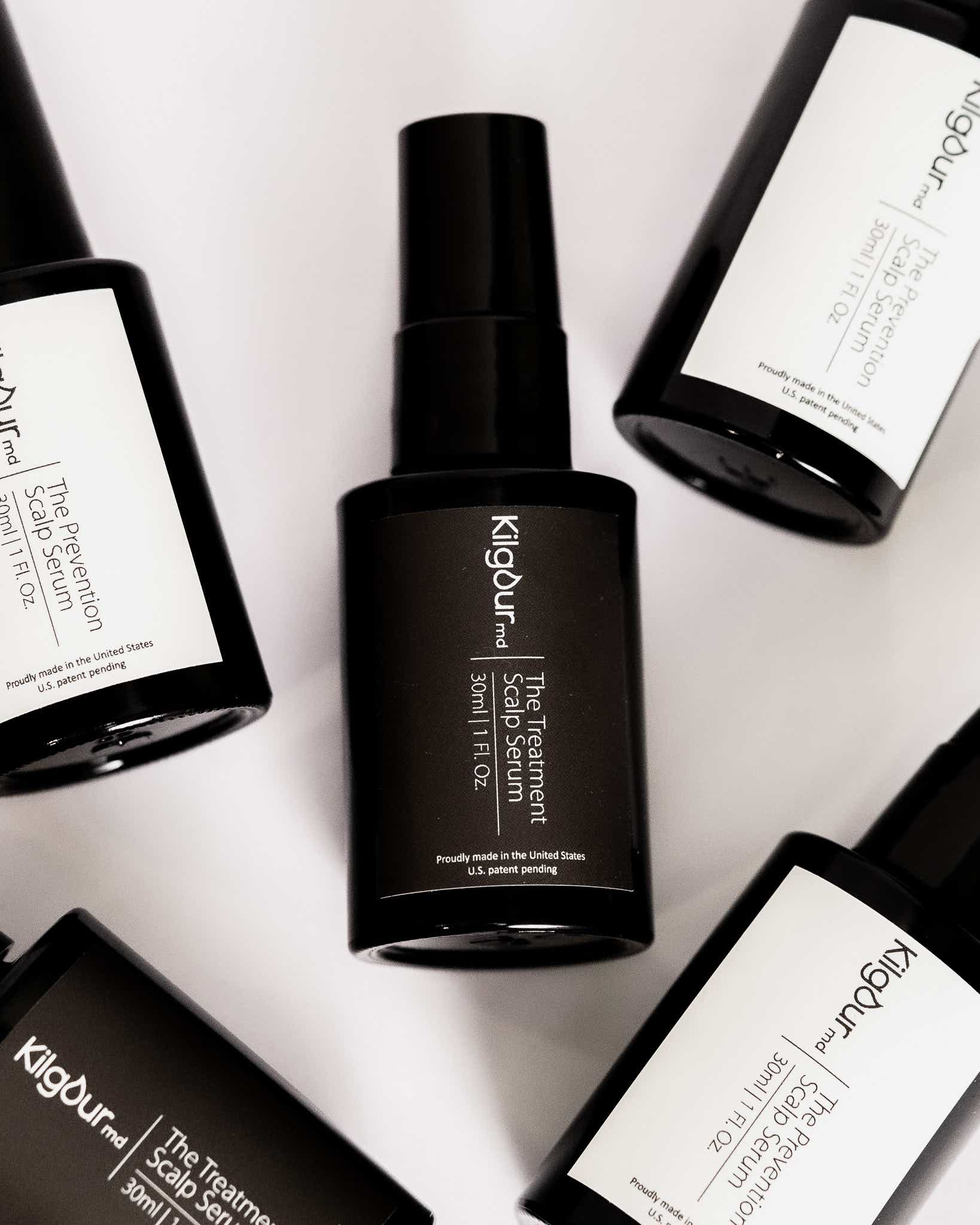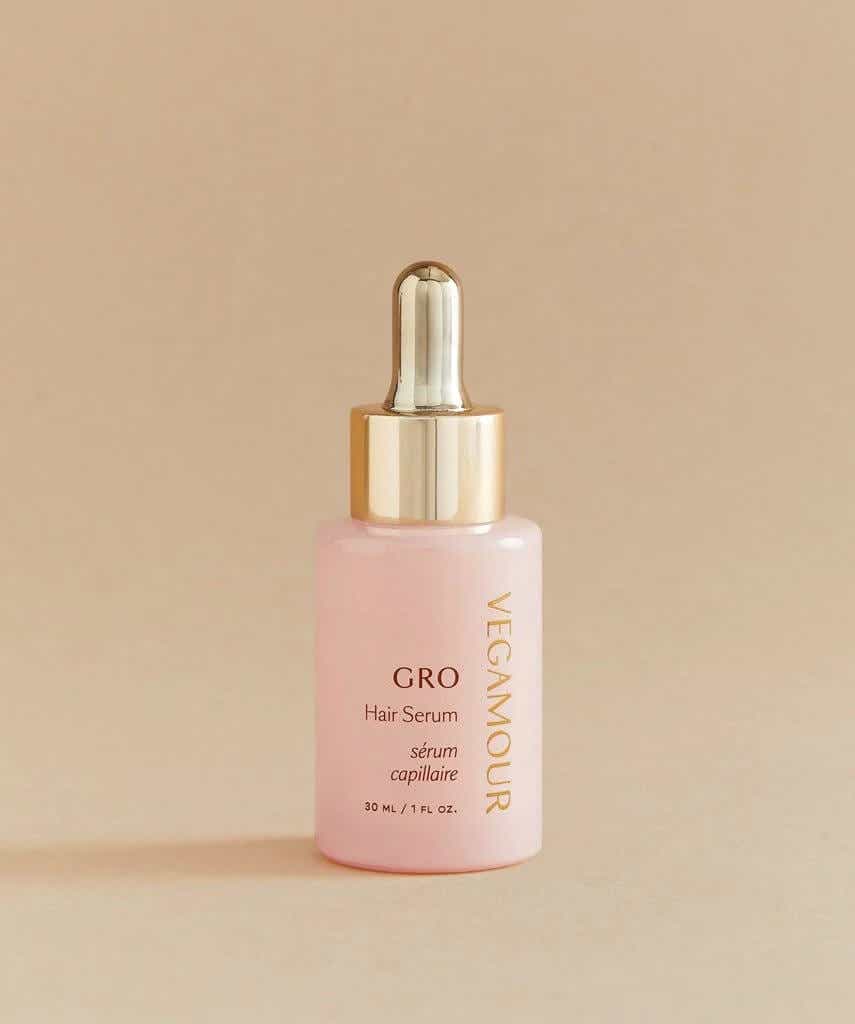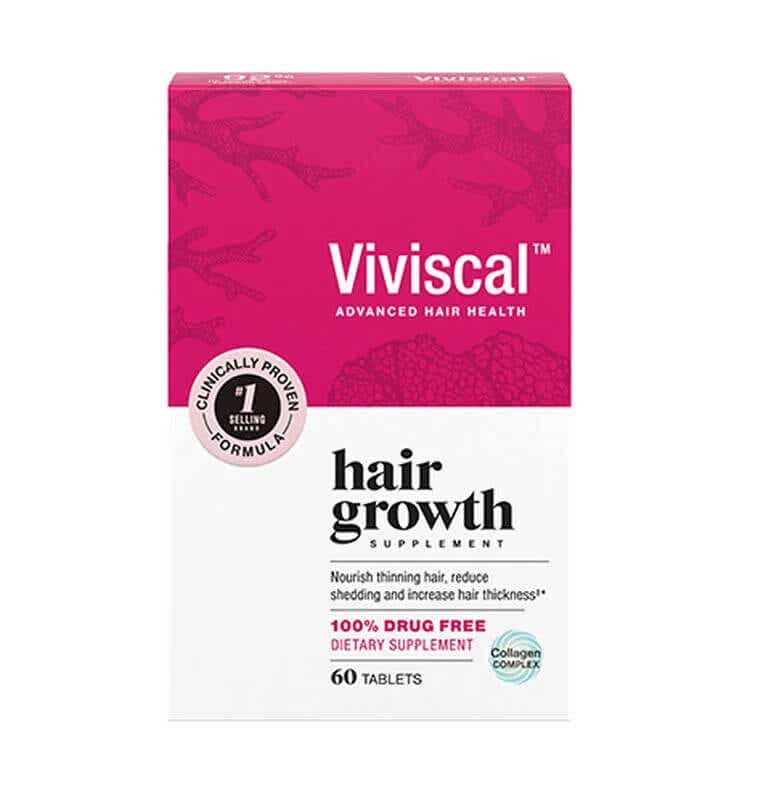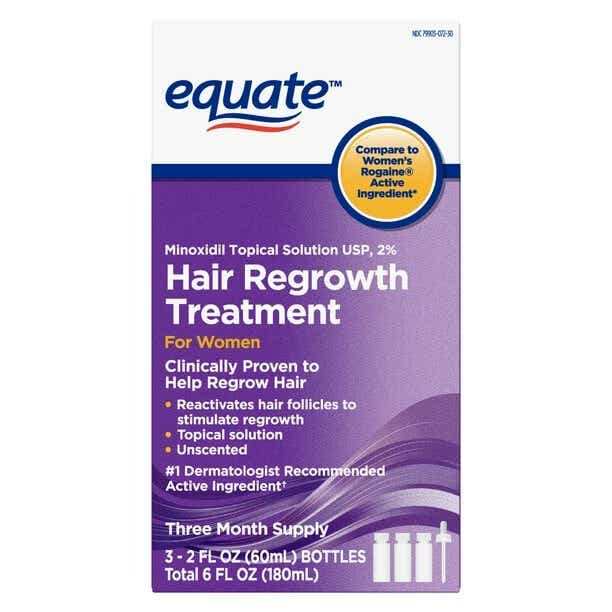Have you been experiencing thinning hair? You’re not alone: Google searches for hair loss have increased in recent years.
But how can you tell the difference between actual hair loss and shedding? The American Academy of Dermatology estimates that the average person loses between 50 and 100 hairs a day. Even though new hair normally replaces hair loss, this doesn’t always happen — and this could be a gradual change or an abrupt one.
As frustrating as it can be, there could be multiple reasons why hair doesn’t grow back, ranging from genetics to an underlying autoimmune disease like alopecia areata. It could also just be related to stress — a temporary form of hair loss known as telogen effluvium, which can be caused by trauma and stress, saw a 400 percent increase during the pandemic.
However, there’s hope: You might be able to reverse hair loss or, at the very least, slow it down. While regrowing your hair may take some time and patience, there are a number of treatments that help speed this process up.
How do you get a hair loss diagnosis?
In the era of WebMD, we’re all guilty of trying to diagnose ourselves, but to get a clear answer, it’s probably best to seek out professional help. Typically, most people visit their doctor to get an exam, where they might be asked a series of questions about their diet as well as medical and family history.
Some tests might need to be taken, depending on what’s going on. In 2022, Michele Green, MD, told us a simple visual inspection could make most diagnoses, but lab work might need to be done if the hair loss is severe enough.
In other cases, she may ask her patients to collect some hair so she can send them to the lab. “The hair is a very good marker that can really tell us what's going on,” she explained. “For some patients, that means that the hair can even tell us if you're having a reaction to a medication and the medication is causing the hair loss.”
Sometimes, it may have to do with an autoimmune disorder like alopecia, where the immune system attacks the hair follicles.
Once a diagnosis is made, the doctor might write you a prescription — it may be oral or topical, or in some cases a mix of both.
Are over-the-counter hair loss treatments effective?
The good news is that many of the treatments that doctors often prescribe are over-the-counter. The most common one is minoxidil — or the generic form of Rogaine — which comes in liquid, foam, and even pill form (though the latter can cause unwanted hair in other parts of the body).
Products with minoxidil help many people regrow their locks or at least slow the rate of hair loss, but Jeff Donovan, MD, of the Donovan Hair Clinic in Canada, emphasized that its effectiveness can vary from person to person. “It certainly can help,” he told Katie in a 2022 conversation. “It doesn't help everyone and it doesn't help everyone dramatically, but it certainly does help.”
There are also popular hair loss pills like Viviscal and Nutrafol, which both experts agreed can be effective. “I often tell people they can get Nutrafol or Viviscal if they want something natural and they don't want to take any medications,” Dr. Green said.
What about prescription treatments for hair loss?
In terms of prescribed medication, both physicians often recommend Propecia, which is the only oral hair loss medication that’s approved by the Food and Drug Administration.
Dr. Green typically uses Propecia for older patients and men, but she said she also routinely gives it to post-menopausal women who are shedding some strands. As for younger patients who are experiencing female pattern hair loss, she often recommends spironolactone, which she said offers “really effective” results.
For those who don’t like to take oral medications, Dr. Green recommended platelet-rich plasma (PRP) via injection or with micro-needling because it “works amazingly well.” Both of these treatments use a patient's own blood cells to accelerate healing in a specific area that’s experiencing baldness.
If the change stems from stress, as seen with telogen effluvium, a more holistic approach may be needed, such as bringing in a mental health professional. “Psychologists are part of the hair loss community, and they can play a valuable role in helping with some of the diagnoses and sometimes the treatments,” Dr. Donovan said.
Are there any side effects that come with hair loss treatment?
Unfortunately, there are side effects when it comes to taking both over-the-counter and prescription drugs. Generally, all forms of these medications are not recommended for women who are pregnant or breastfeeding.
While minoxidil is widely considered safe, Dr. Dovovan said some of his patients who have used topical or oral minoxidil have reported feeling dizzy or the occurrence of headaches. In some instances, he adds that it can even affect blood pressure.
As for other over-the-counter treatments, like Viviscal and Nutrafol, both experts agreed that these are safe, but those with fish or shellfish allergies should steer clear of them.
In terms of prescription drugs, Propecia can lead to everything from erectile dysfunction and decreased libido to swelling in your hands and feet. Spironolactone, on the other hand, can cause diarrhea, nausea, and vomiting.
How long does it take for hair loss medications to work?
Dr. Green said it takes at least three and a half to four months to see any actual results when it comes to regrowth. While it’s understandable to be stressed about your hair loss, she emphasized that it’s in your best interest not to overly worry. “Stress makes everything worse, including your hair loss,” she said.
Does food play a role in hair loss?
In short, it depends. Dr. Donovan believes that food isn’t a factor for the most part, but there are some exceptions. For instance, if someone has low iron to start with and they aren’t eating enough of this mineral, then he would recommend that the patient adjust their diet or take a supplement to ensure that they aren’t deficient.
What about hair loss and shampoo?
Hair washing doesn’t cause your hair to fall out, according to Dr. Green. But keep in mind, everyone is different when it comes to how often you should wash your hair: Those with finer hair may need to wash their hair every other day, while those with thicker hair can get away with going four to seven days without a wash.
Regardless of hair type, Dr. Dovovon said everyone needs to pay attention to the ingredients in shampoos and conditioners because many are packed with chemicals and fragrances that can lead to allergic reactions. He recommended opting for a fragrance-free and hypoallergenic shampoo and conditioner.
It’s also best to remain wary of shampoos and conditioners that claim to regrow hair. “It’s arguable whether the shampoos really help,” said Dr. Green. “No one's really quite sure.”
Best Over-the-Counter Hair Loss Treatments
Rogaine 5% Minoxidil Foam
Amazon
Rogaine is the most well-known OTC hair loss treatment in the game, and for good reason. This 5 percent minoxidil formula is affordable and effective. And even though this product is marketed toward men, it's totally fine to use if you're not one. Pro tip: Opt for the foam formula, which is more user-friendly to apply than the solution that comes in a drop bottle.
Nutrafol Women's Balance
Nutrafol
Good hair days start from within. Nutrafol Women’s Balance supplement targets key causes of hair thinning — like hormonal shifts and stress — to promote visibly thicker, fuller, and stronger hair. The award-winning hair growth formula with a patented Synergen Complex Plus blend of ingredients, including ashwagandha, maca, saw palmetto, marine collagen peptides, curcumin, and tocotrienol complex, works to pinpoint internal causes of hair thinning and shedding to promote a healthy hair growth cycle. The bonus? In clinical studies, many women reported improvements in common menopause symptoms like hot flashes, sleep, and mood, thanks to its whole-body approach.*
KilgourMD Scalp Treatment Serum
KilgourMD
You probably use a serum in your facial skincare routine, but you might not have thought to extend that to the scalp. KilgourMD's scalp treatment features Redensyl, a plant-based substance with DHQG molecules that promotes hair regrowth, plus a blend of anti-inflammatory and antioxidant botanicals. Just keep it up for three months as an alternative to minoxidil to help treat hair loss.
Vegamour GRO Hair Serum
Vegamour
Vegamour's serum is formulated with clinically tested vegan phytoactives that help enhance overall hair health, leading to a fuller looking head of hair. The serum also helps soothe the scalp and revitalizes hair from the roots, which can help increase the appearance of hair density and is safe to use daily.
Viviscal Hair Growth Supplement
Viviscal
Using a combination of hair-healthy vitamins and minerals like biotin, vitamin C, iron, zinc, and the brand's AminoMar collagen complex, Viviscal helps reduce shedding and promote hair growth in about three months. Viviscal comes in the form of a tablet, which you take twice a day with food for six months, and after that, you can reduce your dosage to once a day if you want to continue taking it.
Equate Minoxidil Topical Solution
Walmart
You can pick up minoxidil at your local grocery or drugstore, too. This store-brand option has the same active ingredients as the name brand stuff, but it costs a lot less. Instead of a foam, this formula is a serum, which you have to apply twice a day. Reviewers say it's great if you've got longer hair, as the dropper makes it easier to apply to your scalp than a foam.
The information provided on this site isn’t intended as medical advice, and shouldn’t replace professional medical treatment. Consult your doctor with any serious health concerns.







